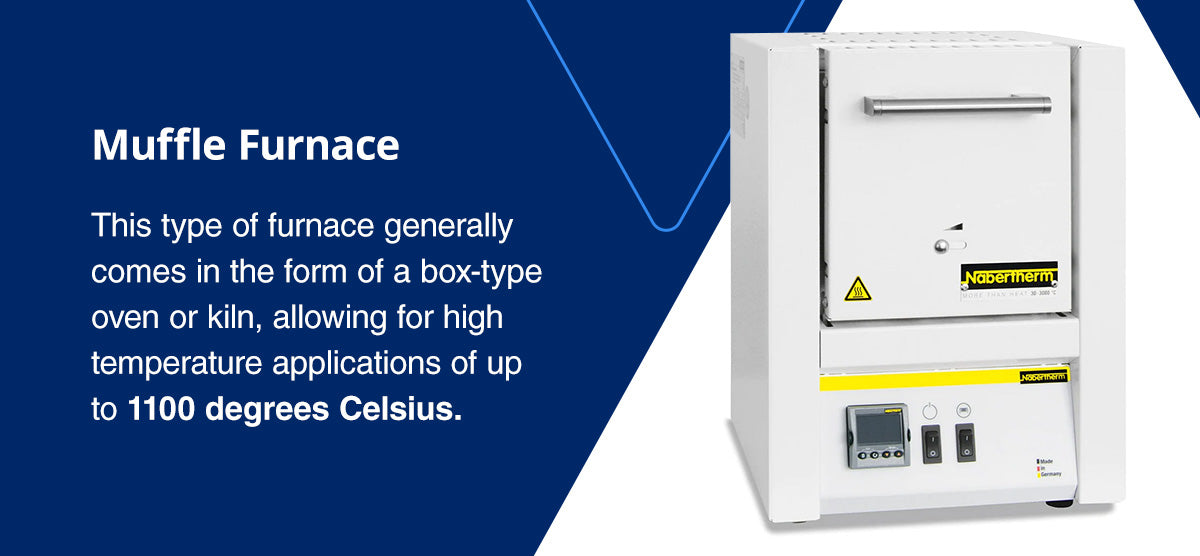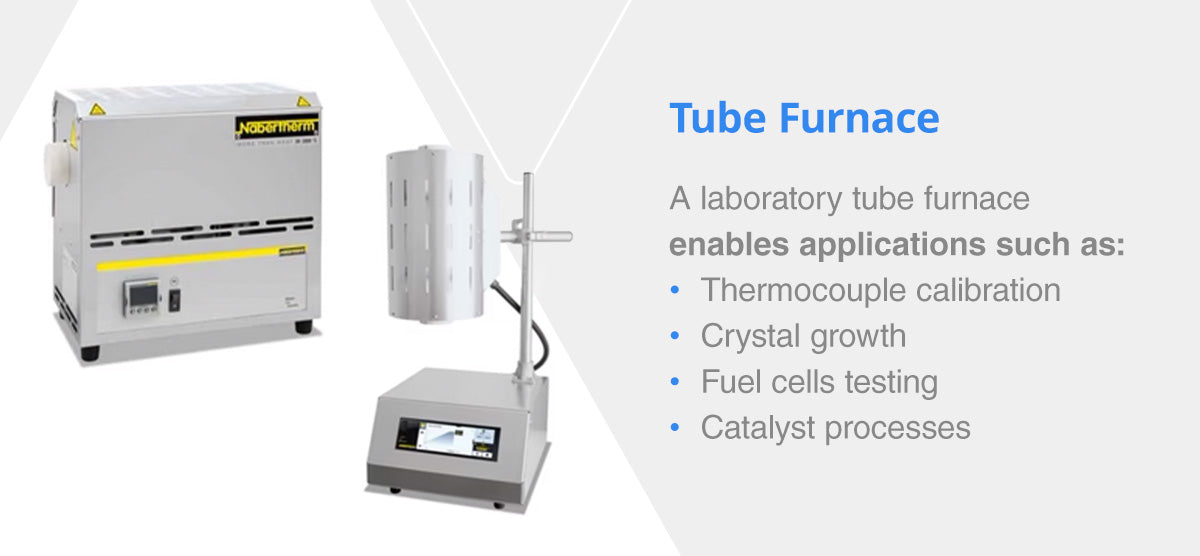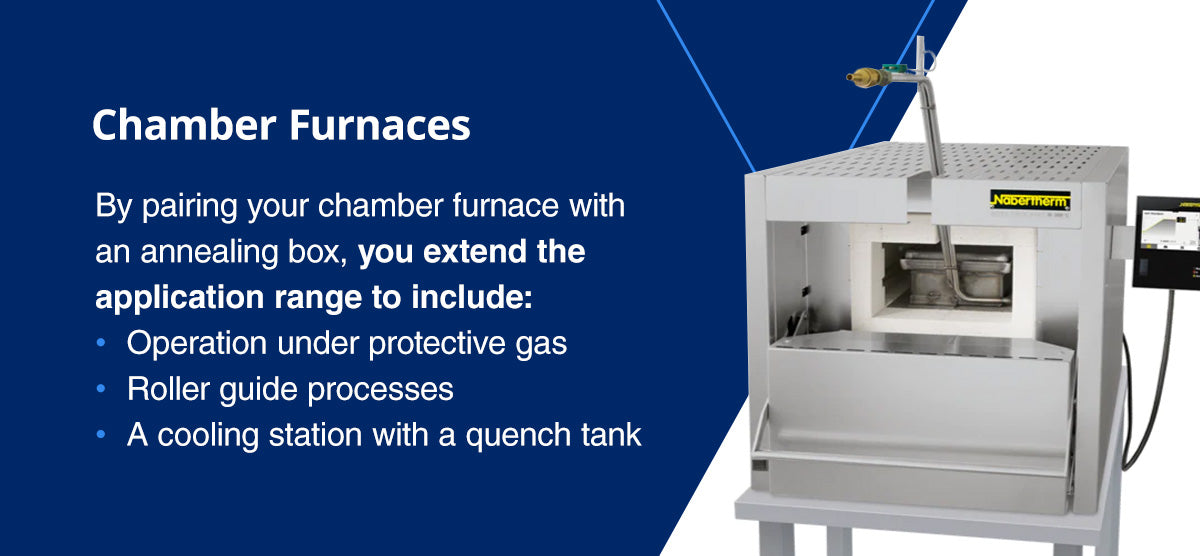Laboratory Furnace Applications and Selections
From sintering to annealing and debinding to calcining, furnaces play a vital role in laboratories. As all applications are different, you will need to alter furnace configurations and temperature ranges to ensure accurate results. Some applications may even require inert gas, so a furnace that is compatible with gases is necessary.
MSE Supplies offers various types of furnaces, such as muffle furnaces, tube furnaces and chamber furnaces. Learn more about the types of lab furnaces and various lab furnace applications.
What Is a Laboratory Furnace?
A laboratory furnace enables technicians to heat samples over an extended period. They are typically constructed from durable ceramics, ensuring they remain intact, even under high temperatures. When choosing a furnace for your application, you can assess specifications such as the height, width and length of the tube or chamber. You'll also need to consider whether the maximum temperature range meets your needs.
Muffle Furnace

A muffle furnace has a ceramic muffle, which laboratory technicians heat via conduction, convection or blackbody radiation from heating elements. This type of furnace generally comes in the form of a box-type oven or kiln, allowing for high temperature applications of up to 1100 degrees Celsius.
Muffle furnaces provide a cost and energy-efficient equipment option for the biomedical, textile and pharmaceutical industries, among others. One of the most common applications of a muffle furnace is to determine the proportion of non-combustible and non-volatile material in a sample. By isolating materials, scientists limit cross-contamination and identify specific components for analysis. Some other standard lab furnace applications include:
- Fusing glass
- Manufacturing enamel coatings
- Creating ceramics
- Soldering metals
- Brazing two or more pieces of metal
In the chart below, you can compare some of the muffle furnace options we provide.



|
|
|
||
|
Temperature |
1100°C |
1100°C |
1100°C |
|
Heating |
Encased in quartz glass |
Muffle heated from four sides |
Heating from two sides |
|
Applications |
Metal heat treatment, catalysts etc. |
Aggressive gasses and vapors |
Determining loss on ignition, ashing food and plastics for subsequent substance analysis. |
|
Advantages |
Fast heat-up rates
|
Ceramic muffle plates provide a good temperature uniformity and protection of the heating elements from aggressive atmospheres. |
High air exchange rate. Preheat incoming air for good temperature uniformity. |
Tube furnaces consist of a ceramic tube surrounded by heating elements for optimal temperature distribution. Due to its precise temperature control, a laboratory tube furnace enables applications such as:

- Thermocouple calibration
- Crystal growth
- Fuel cells testing
- Catalyst processes
One of the main applications for this piece of equipment is to conduct syntheses and purifications of inorganic compounds. Laboratories also occasionally use tube furnaces in organic synthesis. In addition, technicians rely on tube furnaces for uses such as coating, drying, hardening, annealing, degassing and sintering.
At MSE Supplies, we offer different types of tube furnaces, including split, rotary, horizontal and vertical. Here are a few examples:
| Economy Compact Tube Furnaces | Tube Furnaces with Stand for Horizontal and Vertical Operation | Split-Type Tube Furnaces | |
| Temperature | 1100°C | 1100°C | 1300°C |
| Features | Compact |
Adjustable tilt angle and working height Perform horizontally or vertically |
Chamber can be opened in half Options: Horizontal or Vertical |
| Advantages | More economical | Ideal for experiments that must be performed horizontally, vertically or at specific angles | Easy to change working tube |
Chamber Furnaces

Chamber furnaces consist of refractory bricks for maximum insulation. By pairing your chamber furnace with an annealing box, you extend the application range to include:
- Operation under protective gas
- Roller guide processes
- A cooling station with a quench tank
Choose Top-Quality Furnaces From MSE Supplies
MSE Supplies is a leading supplier of furnaces and laboratory ovens that suit a variety of applications. Having worked with clients ranging from Harvard University to Apple to Boeing, we're on a mission to deliver exceptional customer service to our global client base.
Whether you find a product for your needs from our extensive range or need a customized solution for your laboratory, our team of PhD scientists and engineers will guide you at each step of the way. For more information on how to customize products to meet your unique applications, complete our online form today. We'll prepare a quote and help you get the ideal solution for your project.
